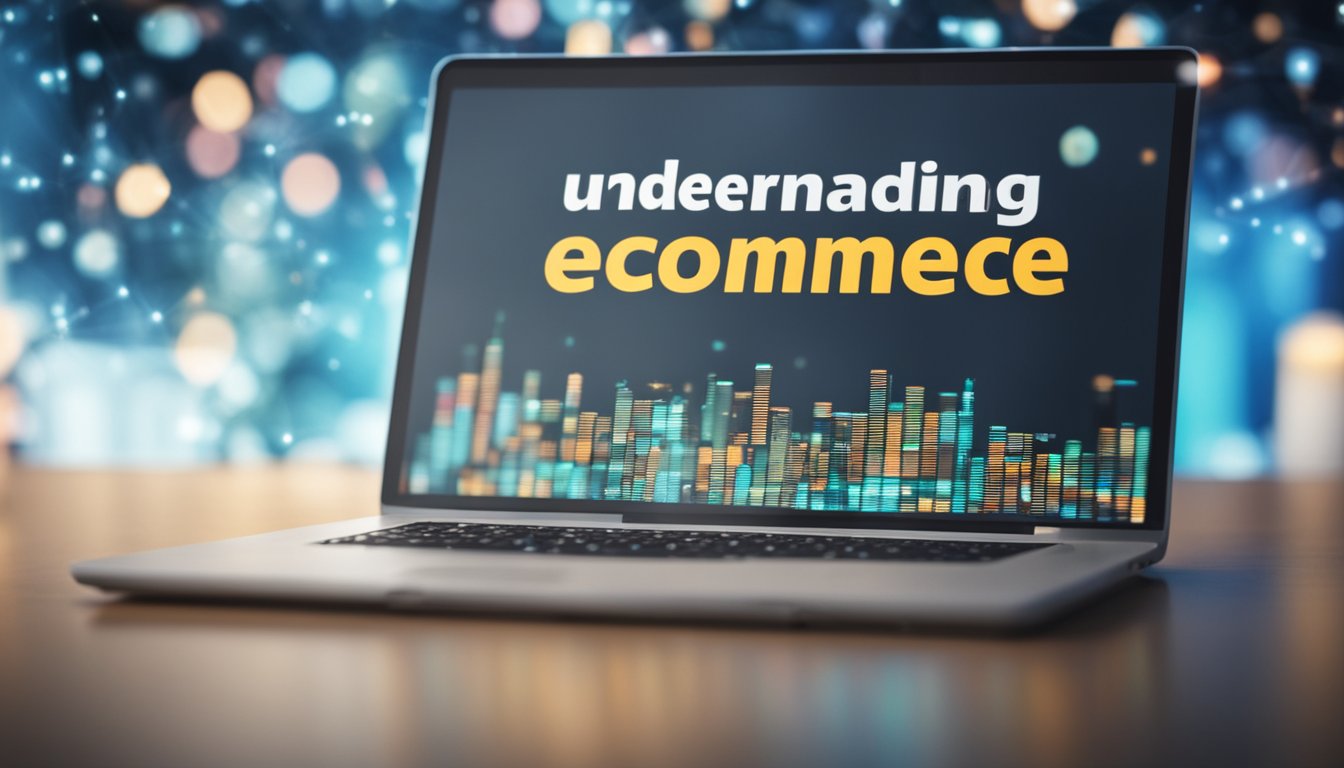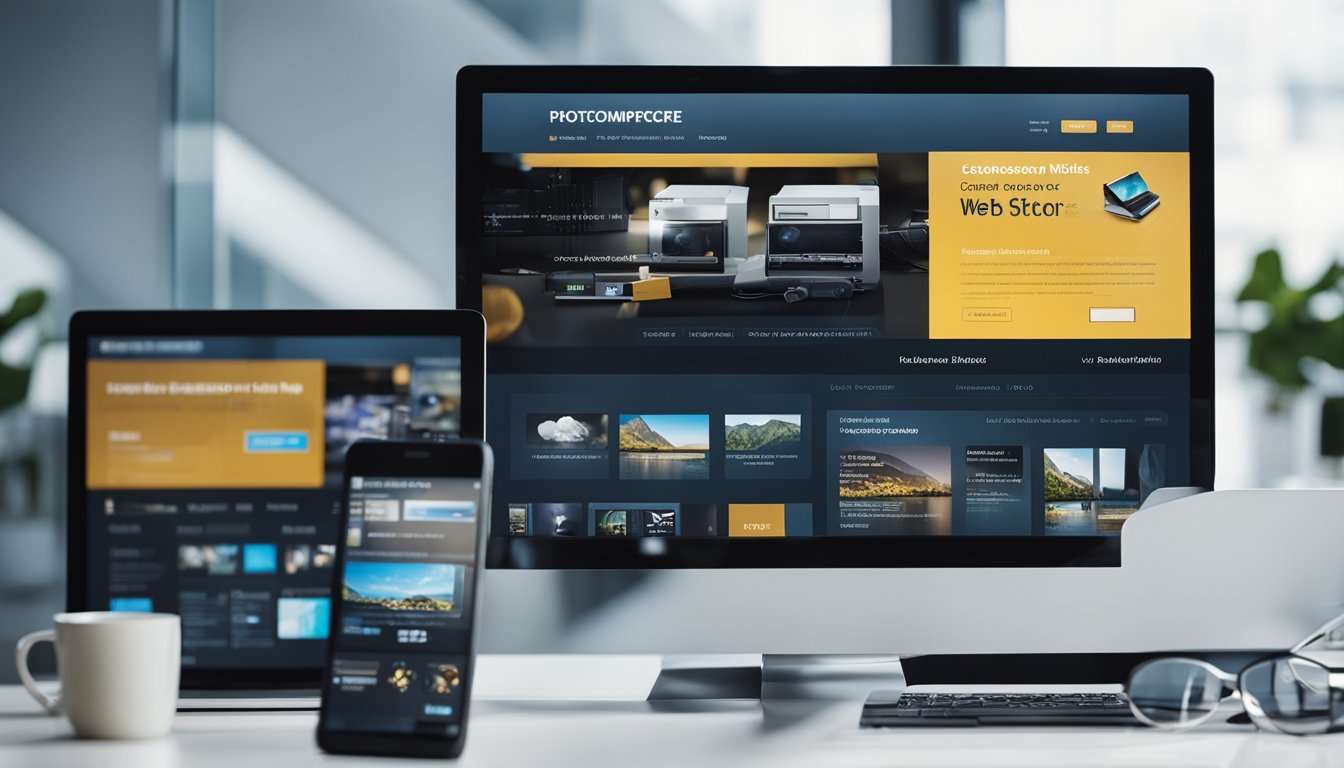
Custom Ecommerce Development Building Unique Online Stores
Custom ecommerce development refers to the process of creating an online store that is tailored to meet the unique needs of a business. Unlike pre-built ecommerce solutions, custom ecommerce development allows businesses to have complete control over
Custom ecommerce development refers to the process of creating an online store that is tailored to meet the unique needs of a business. Unlike pre-built ecommerce solutions, custom ecommerce development allows businesses to have complete control over their online store's features, design, and functionality. This level of flexibility enables businesses to create a unique brand identity and provide an exceptional user experience to their customers.

Understanding custom ecommerce development requires a basic understanding of ecommerce in general. Ecommerce refers to the buying and selling of goods and services over the internet. Ecommerce has become increasingly popular in recent years due to its convenience and accessibility. As a result, businesses of all sizes are looking to establish an online presence to reach a wider audience and increase their revenue. Custom ecommerce development offers businesses the opportunity to create an online store that is tailored to their specific needs, which can help them stand out in a crowded market.
Key Takeaways
- Custom ecommerce development allows businesses to create an online store that is tailored to their specific needs.
- Ecommerce refers to the buying and selling of goods and services over the internet.
- Custom ecommerce development offers businesses the opportunity to stand out in a crowded market by creating a unique brand identity and providing an exceptional user experience to their customers.
Understanding Custom Ecommerce Development

As an expert in ecommerce development, I understand the importance of having a customized ecommerce website that meets the unique needs of a business. Custom ecommerce development involves creating a website that is tailored to the specific requirements of a business, rather than using a pre-built template or platform.
Custom ecommerce website development allows businesses to have complete control over the design, functionality, and features of their online store. This means that businesses can create a website that is fully customizable, from the layout and design to the payment gateway and shipping options.
One of the main advantages of custom ecommerce development solutions is that they are scalable and can grow with the business. As a business expands, it may require additional features or functionality to meet the changing needs of its customers. With a custom ecommerce solution, businesses can easily add new features and functionality to their website as needed.
Another benefit of custom ecommerce development is that it allows businesses to have their own custom domain. This means that the website address will be unique to the business and will not include the name of a third-party platform or service provider.
In summary, custom ecommerce development is a powerful solution for businesses that want to create a unique online store that meets their specific needs. With a custom ecommerce website, businesses can have complete control over the design, functionality, and features of their online store, and can easily scale and grow their website as their business expands.
Essential Features of Custom Ecommerce Websites

As an experienced ecommerce developer, I know that building a custom ecommerce website requires a careful consideration of various features to ensure the success of the online store. In this section, I will discuss some of the essential features that a custom ecommerce website should have.
User Experience and Design Elements
One of the most critical aspects of an ecommerce store is the user experience (UX) and design elements. A well-designed ecommerce website should be easy to navigate, visually appealing, and responsive across all devices. To achieve this, I recommend using wireframes to plan the layout and design of the website before starting the development process. Additionally, incorporating UI/UX best practices, such as clear calls to action, intuitive navigation, and high-quality product images, can enhance the overall user experience.
Sales and Conversion Optimization
An ecommerce store's primary goal is to generate sales, and therefore, optimizing the website for conversions is crucial. The checkout process should be streamlined to reduce cart abandonment rates, and the website should have clear and concise product descriptions and pricing information. Including customer reviews and ratings can also improve the chances of a sale. Furthermore, integrating with third-party tools, such as a CRM or ERP, can help automate the sales process and improve customer engagement.
SEO and Digital Marketing
To drive traffic to an ecommerce store, it is essential to have a solid SEO and digital marketing strategy in place. This includes optimizing the website for search engines, such as Google, and incorporating relevant keywords and meta descriptions. Additionally, integrating with social media platforms and email marketing tools can help increase brand awareness and generate more leads.
Security and Payment Integration
A trustworthy and secure ecommerce website is crucial for building customer trust and ensuring the safety of sensitive data. Integrating with a reliable payment gateway and credit card processing system is essential to ensure secure transactions. Additionally, implementing SSL certificates and other security measures can help prevent fraud and protect customer information.
Scalability and Flexibility
As an ecommerce business grows, so do its requirements and needs. Therefore, building a scalable and flexible ecommerce website is essential to accommodate future growth. Using a website builder that supports ecommerce, such as Shopify, BigCommerce, or Magento, can provide the necessary flexibility and scalability. Integrating with a point of sale (POS) system can also help manage inventory and sales across multiple channels.
In summary, building a custom ecommerce website requires a careful consideration of various features to ensure the success of the online store. By incorporating the essential features discussed above, an ecommerce business can build a website that is user-friendly, optimized for conversions, secure, and scalable.
Choosing the Right Ecommerce Development Partner

When it comes to custom ecommerce development, choosing the right development partner is crucial for the success of your project. Here are some important factors to consider when selecting an ecommerce development partner.
Expertise and Reliability
An ecommerce development partner should have extensive experience in the industry and be knowledgeable about the latest technology and trends. Look for a partner that has a proven track record of delivering high-quality projects on time and within budget. Additionally, reliability is key. You want a partner that you can trust to communicate clearly and consistently throughout the project.
In-house Development Team
It's important to choose a development partner that has an in-house development team. This ensures that the team is dedicated to your project and has a deep understanding of your unique processes and requirements. It also allows for more efficient communication and collaboration throughout the project.
Customization and Budget Considerations
Customization is one of the main reasons to choose custom ecommerce development over using a pre-built platform. Make sure your development partner has the ability to customize the website to meet your specific needs and goals. Additionally, consider your budget when selecting a partner. Look for a partner that can provide high-quality services within your budget.
Latest Technology and Trends
The ecommerce industry is constantly evolving, and it's important to stay up-to-date with the latest technology and trends. Look for a development partner that is knowledgeable about the latest advancements in the industry, such as AI and chatbots. Additionally, ensure that the partner is using a modern content management system and can provide ongoing support and updates to drive sales and improve the customer experience.
In summary, choosing the right ecommerce development partner is crucial for the success of your project. Look for a partner with expertise and reliability, an in-house development team, the ability to customize the website within your budget, and knowledge of the latest technology and trends in the industry.
Frequently Asked Questions

What are the benefits of custom ecommerce development for my business?
Custom ecommerce development allows you to create a website that is tailored specifically to your business needs. This means that you can design a website that is unique, user-friendly, and easy to navigate. A custom ecommerce website can also help you to increase your online sales by improving the user experience and making it easier for customers to find what they are looking for. Additionally, a custom ecommerce website can be optimized for search engines, which can help to improve your website's visibility and attract more traffic.
How do I create my own ecommerce website?
Creating your own ecommerce website can be a challenging task, but there are many resources available to help you get started. You can use an ecommerce platform such as Shopify, WooCommerce, or BigCommerce to create your website. These platforms provide you with templates and tools to help you design and launch your ecommerce website quickly and easily. Alternatively, you can hire a professional web developer to create a custom ecommerce website for you.
What are the requirements for ecommerce website development?
To develop an ecommerce website, you will need to have a domain name, web hosting, and a website builder or content management system (CMS). You will also need to have a payment gateway to process online payments and a secure SSL certificate to ensure that your website is secure.
What are some ecommerce website development services available?
There are many ecommerce website development services available, including custom website development, ecommerce platform development, and website redesign and optimization services. Some popular ecommerce website development services include Shopify, WooCommerce, and Magento.
What is the cost of ecommerce development?
The cost of ecommerce development can vary depending on the complexity of the project and the services required. Custom ecommerce development typically costs anywhere from a few thousand to several hundred thousand dollars, depending on the complexity of the project. Ecommerce platform development services such as Shopify and WooCommerce typically charge a monthly fee, which can range from $29 to $299 per month.
Who are some reputable BigCommerce web developers?
Some reputable BigCommerce web developers include Pixel Union, IntuitSolutions, and Groove Commerce. These companies specialize in ecommerce website development and have a proven track record of delivering high-quality websites for their clients.




